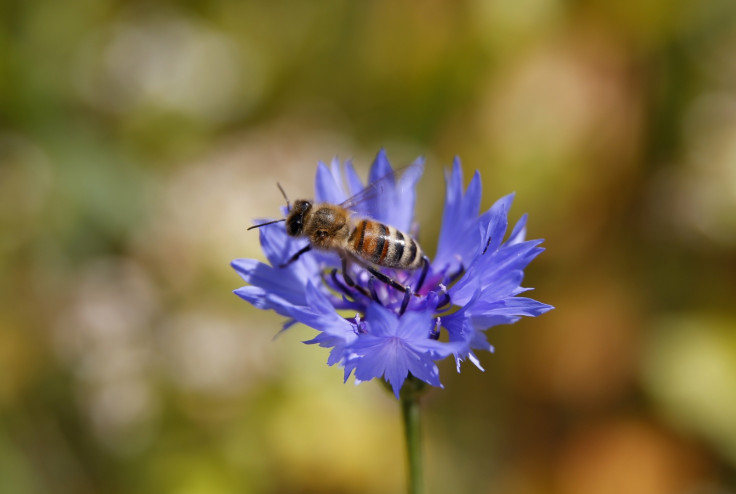Human Nutrition Affected Where Bees Declining and Pollination Disrupted

A new study has established the high costs to human nutrition when pollination is disrupted.
While the effects of the disappearance of bees in some regions have been shown to affect food production, a link to nutrition had not been proven.
However, researchers from Stanford University have discovered that the impact of bees and other inspects on human nutrition is "much higher than previously thought".
Fewer bees means fewer crops that depend on insects for pollination and fruit production.
"A disruption in pollination services certainly has a price tag; estimates go as high as $390bn annually, but the cost to our nutrition could be even greater," said Becky Chaplin-Kramer, lead author of the study and a Stanford scientist working with the Natural Capital Project.
The team focused on three crucial nutrients -- vitamin A, iron and folate.
Using global datasets of yields for 115 of the most common food crops, along with data on pollination dependence and the micronutrient content of each of those crops, they combined it with World Health Organization estimates of micronutrient malnutrition to produce a map of hot spots most affected.
Sub-Saharan Africa, India and the Middle East were shown to be regions of high nutritional vulnerability, where disruptions in pollination could have major implications for human health.
For example, in Southeast Asia and parts of Latin America, almost 50% of plant-derived vitamin A production requires pollination.
"We need to set a new research agenda for nutrition, and pollination services are critical," added Jamie Gerber, one of the study's co-authors and co-director of the Global Landscapes Initiative at the University of Minnesota's Institute on the Environment.
"With growing concerns over how to feed a population fast approaching nine billion, we need to ensure that people are not only getting enough food, but the nutrients necessary to live healthy and productive lives."
The study can be found in the Proceedings of the Royal Society B.
© Copyright IBTimes 2025. All rights reserved.





















